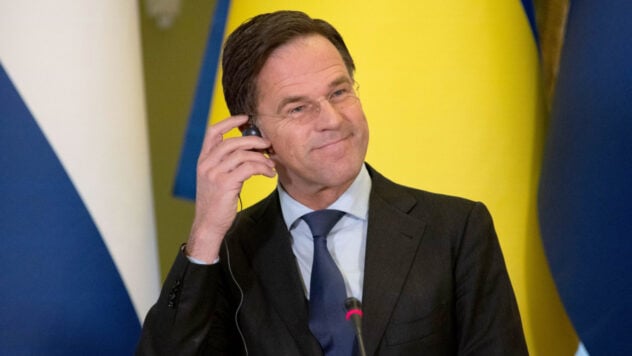
On Tuesday, October 1, Mark Rutte, former Prime Minister of the Netherlands, officially took over as NATO Secretary General, replacing Jens Stoltenberg.
Earlier, the appointment of Mark Rutte to the post of Secretary General of the military bloc was supported by all 32 member countries during a meeting of allied ambassadors at the bloc's headquarters in Brussels.
Slovakia and Hungary supported Rutte, the President of Romania withdrew his candidacy
Earlier, Rutte was supported by Hungary and Slovakia, which were against. Reuters noted that the change in position of Budapest and Bratislava was an important step for Rutte on the way to receiving this position.
Now watching
Hungary's support was the result of a meeting between Prime Minister Viktor Orban and NATO Secretary General Jens Stoltenberg, at which the parties agreed that Hungary would not block NATO's decision to provide support to Ukraine, but would not be involved in this process either.
— Prime Minister Mark Rutte confirmed that he fully supports the agreement and will continue to do so if he becomes the next NATO Secretary General, — Orban wrote on social media X.
As the media noted, the new NATO chief will be tasked with maintaining the support of allies in Ukraine's fight against the Russian invasion, while preventing any escalation that could drag the military bloc directly into a war with Moscow.
The only opponent remaining in the race for the post of Secretary General, Romanian President Klaus Iohannis, withdrew his candidacy. Thus, all 32 members of the bloc agreed with Mark Rutte's candidacy for the post of NATO Secretary General.
What is known about Mark Rutte
Mark Rutte was born into a Protestant family in the city of The Hague. He studied at Leiden University, graduating in 1992.
From 1988 to 1991 he headed the Youth Organization for Freedom and Democracy (the youth wing of the People's Party for Freedom and Democracy). After graduating, he worked for the food company Unilever for ten years, and in 2002 he moved into national politics.
During the 2002 parliamentary elections, Rutte worked at the headquarters of the People's Party for Freedom and Democracy, and was subsequently appointed State Secretary for Social Affairs and Employment in the first Balkenende government.
After the government's resignation, he served for a short time as a member of parliament, and was then reappointed to this position in the second Balkenende government.
From 17 June 2004 to 27 June 2006, he served as State Secretary for Higher Education, Science and Culture in the second Balkenende cabinet.
Rutte later returned to the second chamber of the States General and soon became the leader of the parliamentary faction of the People's Party for Freedom and Democracy.
In the 2010 parliamentary elections, he headed the list of the People's Party for Freedom and Democracy.
A center-right coalition was formed in parliament between the People's Party and the Christian Democratic Appeal, which was supported by the Party for Freedom led by Geert Wilders.
On 8 October 2010, Mark Rutte was appointed head of government and formed his cabinet.
Rutte became the first prime minister of the Netherlands not from the Christian Democratic Party or the Labour Party since 1918. He is also the first prime minister from the People's Party for Freedom and Democracy.
Mark Rutte's attitude to Ukraine's war
The Netherlands is one of Ukraine's largest European allies.
Mark Rutte has repeatedly stated that his country is ready to support Ukraine as long as necessary, including strengthening air defenses and training F-16 pilots.
During President Volodymyr Zelensky's visit to the Netherlands in May 2023, the leaders agreed that a special tribunal for the crime of aggression by the Russian Federation should be held in The Hague.
Rutte and Zelensky believe that no existing international mechanism can exercise jurisdiction over the crime of aggression committed in Ukraine.
In April 2024, Rutte stated that the need to deliver surface-to-air missiles to Ukraine was urgent, and made new efforts to persuade countries with large numbers of Patriot air defense systems to give them to the Ukrainians.

